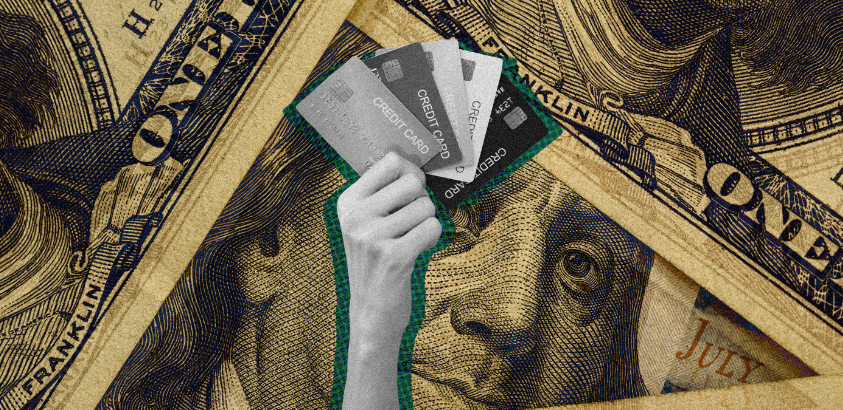A 5-step plan to liberate yourself from burdensome credit card debt.
For the first time ever, the United States has witnessed a concerning milestone in its financial landscape. Recently, our total credit card debt crossed the monumental threshold of $1 trillion dollars. During the second quarter, credit card balances exploded by $45 billion, more than 4.5%, according to the New York Fed’s latest Quarterly Report on Household Debt and Credit. Do you know just how massive the amount of one trillion dollars truly is? Well, consider this:
- Time in Seconds: If you counted from one to one trillion at a rate of one number per second, it would take you around 31,688 years to reach one trillion.
- Days of Spending: Imagine you were spending $1 million every single day. It would take you 1 million days to spend $1 trillion. That’s roughly 2,739 years!
Financial Insecurity
This staggering sum is indicative of a more significant issue. The issue reflects not only a rise in consumer spending but also a potentially troubling trend of financial insecurity. As households grapple with mounting debt, it’s imperative to address the issue and develop strategies to alleviate the burden.
Causes & Consequences
The surge in credit card debt attributes to a confluence of factors. These factors include consumerism, unexpected expenses, and economic challenges. Easy access to credit, coupled with aggressive marketing campaigns, has fueled a culture of immediate gratification. Furthermore, unforeseen medical bills, job loss, and other emergencies can exacerbate the situation. This pushes individuals to rely on credit cards for basic necessities.
The consequences of spiraling credit card debt are far-reaching. High interest rates can result in compounding debt, making it increasingly difficult for individuals to escape the cycle. Credit scores plummet, hindering access to loans and mortgages, and increasing financial stress can negatively impact mental and emotional well-being. It is crucial to develop a strategic plan to break free from this cycle and regain financial stability.
5-Step Plan to Overcome Credit Card Debt
Here is a comprehensive 5-step plan to liberate us from the weight of credit card debt.
- Assess the Situation: Begin by taking stock of your financial landscape. Gather all credit card statements, loan documents, and other debts to understand the full scope of your financial obligations. Calculate the total amount owed, interest rates, and minimum payments. This assessment provides a clear starting point for a personalized repayment strategy.
- Create a Realistic Budget: Develop a comprehensive budget that outlines your monthly income, fixed expenses (rent/mortgage, utilities, groceries), and discretionary spending (entertainment, dining out). Deduct your expenses from your income to determine the amount available for debt repayment. Prioritize essentials and consider cutting back on non-essential expenditures.
- Snowball or Avalanche Method: Two popular debt repayment strategies are the snowball and avalanche methods. In the snowball method, focus on paying off the smallest debt first while making minimum payments on other debts. As pay off each debt, roll the payment into the next debt. The avalanche method, on the other hand, involves targeting the debt with the highest interest rate first. Whichever method you choose, maintain minimum payments on all debts.
- Negotiate with Creditors: Reach out to your creditors to explore options for reducing interest rates or setting up a more manageable repayment plan. Many creditors are willing to work with individuals facing financial difficulties to prevent default. By negotiating, you may be able to secure lower interest rates, waive fees, or extend the repayment timeline.
- Seek Professional Guidance: If your debt situation is overwhelming, consider seeking assistance from financial professionals, such as credit counselors or financial advisors.
This is Your Wake-Up Call
The crossing of the 1 trillion-dollar mark in U.S. credit card debt serves as a wake-up call to the pressing need for responsible financial management. By acknowledging the underlying causes, and consequences, and adopting a well-structured plan, we can break free from the clutches of credit card debt. With discipline, determination, and a commitment to financial well-being, a path to a debt-free future is achievable.











